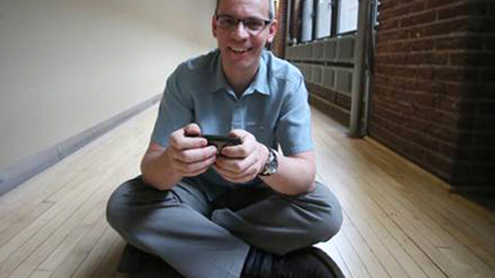
LONDON: British software engineer who sent the world’s first text message 20 years ago said on Monday that he is amazed at how the technology has developed.
The engineer, Neil Papworth, was chosen by chance to send the message which read “Merry Christmas” to a director at British telecommunications giant Vodafone after he had worked on developing the software.Vodafone wanted to develop the technology as an improvement on paging, Papworth said, and no one realised then how it would change the culture of communication forever 150 billion texts were sent in Britain alone last year.
“They thought it would be used as an executive pager so that secretaries could get hold of their bosses while they were out and about and they could send them messages and tell them what to do and where to go,” Papworth told BBC radio.On December 3, 1992, he was 22 and working for a company called Sema Group Telecoms at Vodafone’s offices in Newbury, southeast England, developing what was known as a Short Message Service Centre (SMSC).
Mobile phones did not at that point have keyboards so he typed out the message on a computer keyboard.”I used to go down there every day, help them test the system, hook it up to their network and we did a lot of testing down there over the next few weeks,” Papworth said.”Then it came to a day when they wanted to send this message and I don’t remember exactly how it came about, but I was the one who was down there and so I was the one who got to send it in the end.
“The message was ‘Merry Christmas’. It was to a man called Richard Jarvis, he was a director at Vodafone at the time who was at the Vodafone Christmas party on the other side of town.”Far from realising he was part of a historic event, Papworth said his overwhelming emotion was one of relief.”Having this message work was important, so for me when it went through it was more a relief than anything else that our software had been demonstrated to work and it had done its job,” he said.
As text messaging quickly gained in popularity, Vodafone ordered more and more equipment to support the system.”So it was good for business when it took off because we sold more systems, but it was also quite amazing to see how many people use it and the range of applications people have found for it,” Papworth said.Papworth now lives in the French-Canadian city of Montreal with his wife and three children and works as a software architect. – Brecorder











